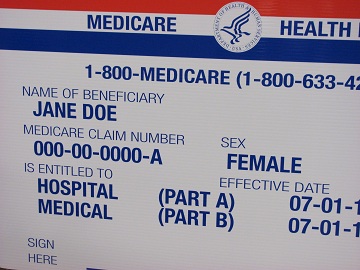AARP Hearing Center
AARP Delaware Joins in Campaign to Help Keep Scammers from Conning Enrollees
As a major federal government initiative is underway to issue new identification cards to the Medicare beneficiaries in Delaware and nationwide, an AARP survey finds that a majority of those enrollees are at risk of being victimized by fraud schemes designed to capitalize on the card replacement program.

In response, AARP Delaware is participating in an education campaign to raise awareness among consumers about Medicare Card scams.
The year-long national effort to mail new ID cards to 58 million Medicare recipients began in May. The redesigned cards no longer contain enrollees’ Social Security numbers – a move designed to enhance security and help protect against identity theft. Consumer advocates, including AARP, welcome the development but, ironically, the card replacement program has opened these new opportunities for con artists:
- Scammers reportedly pose as Medicare representatives and contact beneficiaries to demand immediate payment via credit card of a processing fee for the new card. No such fee exists.
- In other cases, the scammers falsely say that Medicare needs to “verify” a recipient’s Social Security number or other personal information before issuing the card. Medicare says it does not make such calls and does not initiate uninvited contact.
- Yet another version of the scam tells beneficiaries that they are due a refund on transactions with their old card, and asks them to provide bank account information for the processing of the alleged refund.
Results of the AARP survey, which polled Medicare enrollees age 65 and older, indicate a significant number of people could end up as victims of the scams. Among the key findings:
- There is little public awareness: Three-quarters of those surveyed (76 percent) knew nothing or very little about Medicare’s plan to issue new identification cards.
- Six in 10 think they could face a fee: Although the redesigned ID cards are free, 60 percent of Medicare enrollees did not know or weren’t sure if they would be required to pay a fee.
- Half might not question a purported call from Medicare: When asked if beneficiaries could expect to receive a telephone call from Medicare asking them to verify their Social Security number, half (51 percent) said they weren’t sure.
“The new Medicare cards are a step forward for fraud prevention, but con artists are working overtime on new ways to scam seniors,” said Kimberly Iapalucci, AARP Delaware Communications Director. “That’s why AARP Delaware is working closely with the Fraud Watch Network to ramp up efforts to educate Medicare beneficiaries about the new cards and potential scams.”
The AARP education campaign includes social media text and video postings, website content, and articles in recent editions of the AARP Bulletin. AARP Delaware and other AARP state offices are distributing a handout that details the new card rollout and associated scams.
The AARP Fraud Watch Network launched in 2013 as a free resource for people of all ages. Consumers may sign up for “Watchdog Alert” emails that deliver information about scams, or call a free helpline at 877-908-3360 to speak with volunteers trained in fraud counseling. The Fraud Watch Network website provides information about fraud and scams, prevention tips from experts, an interactive scam-tracking map, fun educational quizzes, and video presentations featuring Fraud Watch Network Ambassador Frank Abagnale.
Abagnale, the renowned fraud expert whose personal story was depicted in the hit movie “Catch Me If You Can,” is also host of a new AARP weekly podcast series, “ The Perfect Scam,” that launched earlier this year.































































